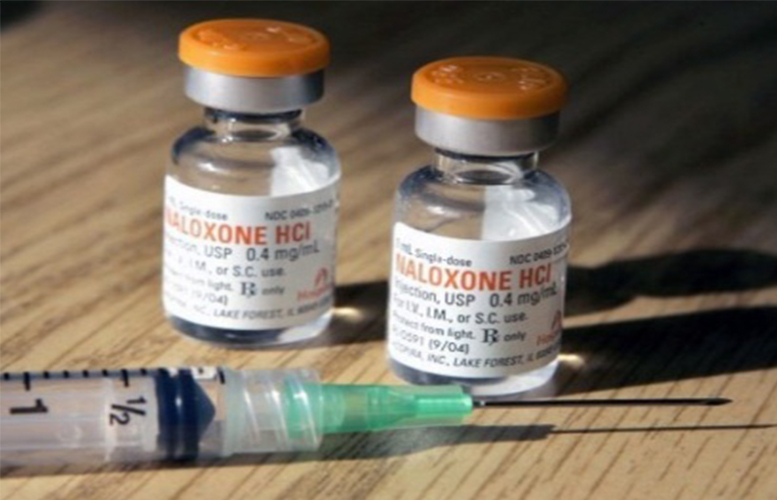The city’s police department last week received a small quantity of a well-known anti-overdose drug called Narcan from the Passaic County Prosecutor’s Office to launch a local Narcan Program to combat heroin overdose.
“We did have people attend the course,” police lieutenant Michael Campanello said. “It was a train the trainer course.” The prosecutor’s office ran a training session for police officers from all 16 municipalities in the county. Each designated officer was trained on the use an aerosol form of naloxone which reverses the effects of opiates like heroin.
Philip Devadan, director of pediatric care at Chilton Memorial Hospital, trained the officers on administering the drug nasally to overdose victims, prosecutor’s office said. The officers were taught to use an atomizer by inserting it inside the overdose victim’s nasal cavity and the injecting the drug.
The drug works almost instantaneously, within 30-seconds, the victim is rendered responsive, reversing the over dosage. Cost for each unit of the anti-overdose drug run for $25, but with the added cost of gloves and atomizer each unit goes for $50.
The county has purchased 250 units of the drug under its Narcan Program which it has already distributed to the 16 municipalities. Campanello wasn’t sure of the exact number the city’s police department received. Money for the kits came from forfeiture dollars, according to the prosecutor’s office.
After the city depletes its supplies of kits provided by the county it will have to purchase its own, according to prosecutor’s office.
Governor Chris Christie unveiled the state’s Narcan program in April, but limited the program to Ocean and Monmouth counties. In June, Christie announced the program would be expanded all 21 counties in the Garden State.
The prosecutor’s office will oversee the city’s local program through a department designated coordinator who will have the responsibilities of making sure the units are deployed properly and all officers in the department are trained in its use.
The lieutenant suggested that it might be a while before the city’s entire police force is trained to use Narcan in line of duty. “There’s about 400 police officers to train all of them takes a lot of time,” Campanello said.
The department must also develop and utilize a standard operating procedure for the use of Narcan, according to the prosecutors’ office.
“It seems like it’s a growing epidemic statewide with the overuse of the heroin,” Campanello said. “It’s unfortunate, but it’s necessary.”
Jayed Rahman contributed to this report.
